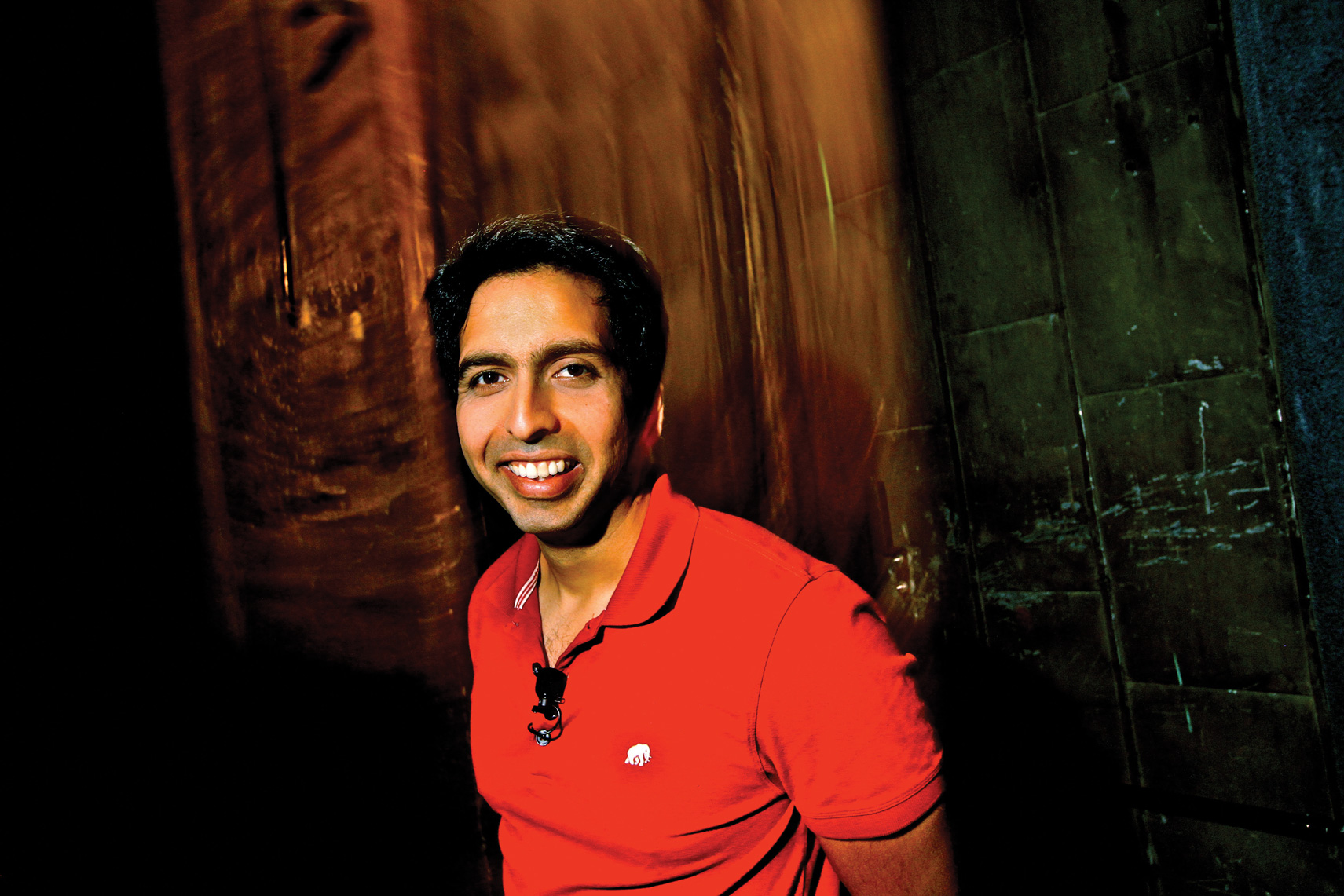
Rick Wang
Staff Writer
Khan Academy, a world recognized nonprofit organization designed to aid students and teachers alike in understanding and learning about academic constructs, is the leading catalyst for a movement toward a broader, more efficient means of education. The founder, Salman Khan, a Harvard and MIT graduate, decided to stop pursuing engineering in favor of a career creating academic videos that will connect with people across the world. Khan spoke at the Granada Theater on Sun., Jan. 24 for an Arts & Lectures event, in what turned out to be an enlightening talk about the gradual evolution of education and what it means to people individually.
Regarded as a pioneer for implementing technology as an efficient teaching practice, Khan did not envision his life riding down this path. It all started when he offered to help tutor his cousin who lived far away from home. Every afternoon after work, Khan was on the phone helping his cousin with basic arithmetic concepts, subjects such as how to add fractions. It proved so efficient that in just a span of six weeks, his cousin soared through remedial math to advanced classes.
As family members noticed this “free” tutoring offered by their cousin, each came asking for help until tutoring ten or so family members became too hectic for Khan. Then his friend came up with the idea to simply make videos on YouTube. Of course, ten years ago, YouTube was considered solely an entertainment source.
To his surprise, many people reached out to him to show gratitude, claiming that his videos were the only reason they passed. Others decided to pursue a degree again, because his explanations made difficult concepts clearer. As videos became more and more frequent, Khan began to wonder why his specific teaching style helped so many students.
At the event, Khan elaborated on how different styles of teaching branch out with various results. Traditional classrooms, where teachers are sometimes overwhelmed by their teaching quota, or class times extend too long for attention spans to really hold on, are an environment that foster their own conclusions. Too often, students go to class and within a half hour (or less) of its inception, begin to yawn and turn their brains off. Questions like, “Why are classes an hour long?” or “Is the pace of learning something more significant than actually understanding the concept?” display the reality that maybe educational standards aren’t efficiently advocating for their goals with correct methodology.
Khan Academy was built on ten-minute videos that cover a topic step-by-step. One interesting thought brought up by Khan was that perhaps this time period — and the fact that there is a video that demonstrates a lesson in an environment that doesn’t put any pressure on learning the material — enhances one’s ability to retain information and remain focused. Whatever the reason, the goal of Khan Academy is to provide a free education for everyone, including teachers and students.
In his endeavors, Khan claims that technology has given us the opportunity to really change the dynamic of education to something much more simple and straightforward. With new inventions, such as virtual reality, coming out, however, even more intensive learning strategies may be on the horizon. Perhaps kids can walk on the number line, and fully immerse themselves in other strange methodologies that haven’t been experienced by anyone before. But Khan believes that no matter what happens, there is something special, almost romantic, about the simplicity of having a video talk through, demonstrate and teach a lesson in a very direct manner that will always be needed.
Certainly, the educational standards are always under construction, the phrase “world class” education is as ambiguous as it sounds. Khan, who started Khan Academy back in 2005, continues to drive the company in the direction that will pick at this controversy for years, and in the process, hopes to enhance the quality of education everywhere.
The company’s most recent step in doing so is by joining a partnership with College Board, the nationwide company responsible for holding educational standards at certain levels and determining how they want these goals to be reached. As technology continues to evolve, education will certainly grow in tandem. There is simply no limit or boundary to how education as a field can develop.










